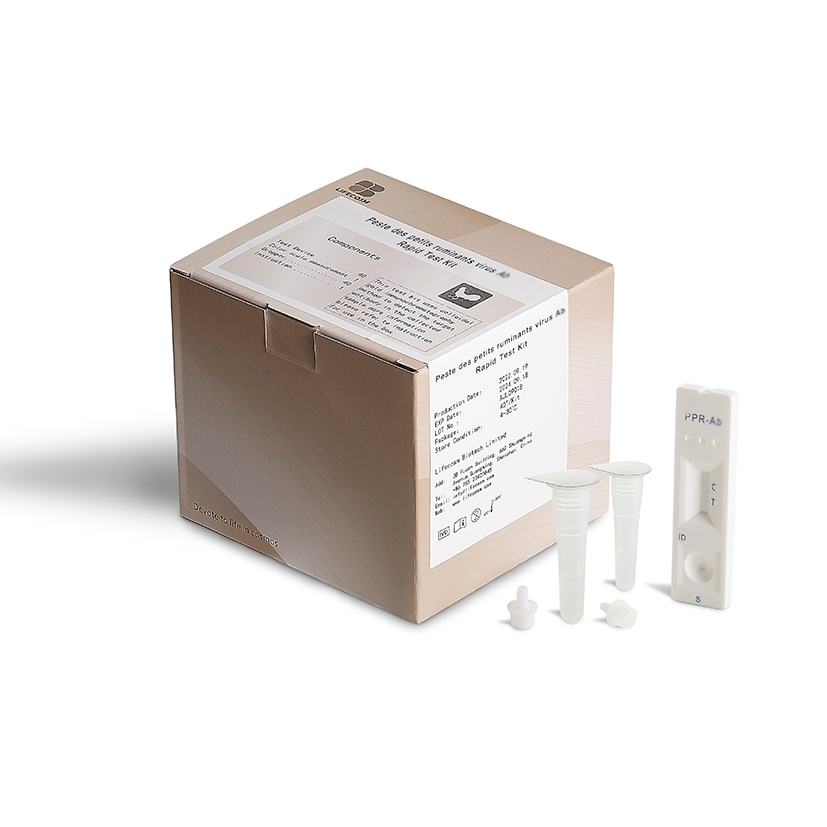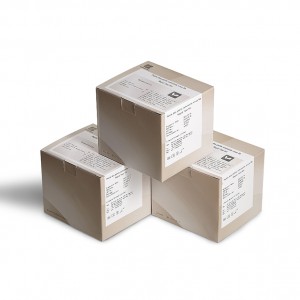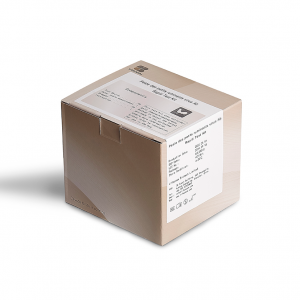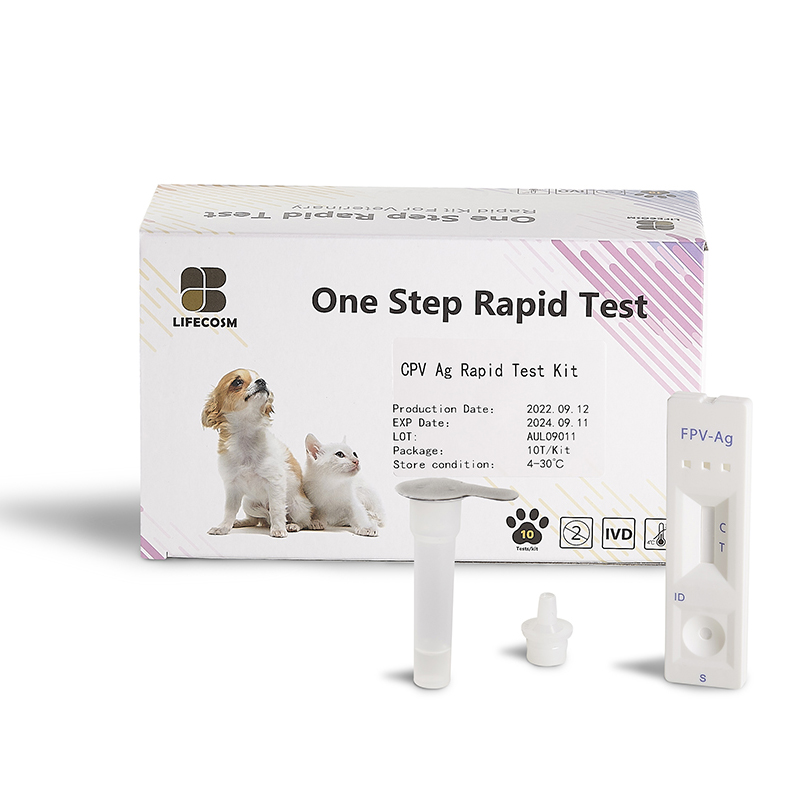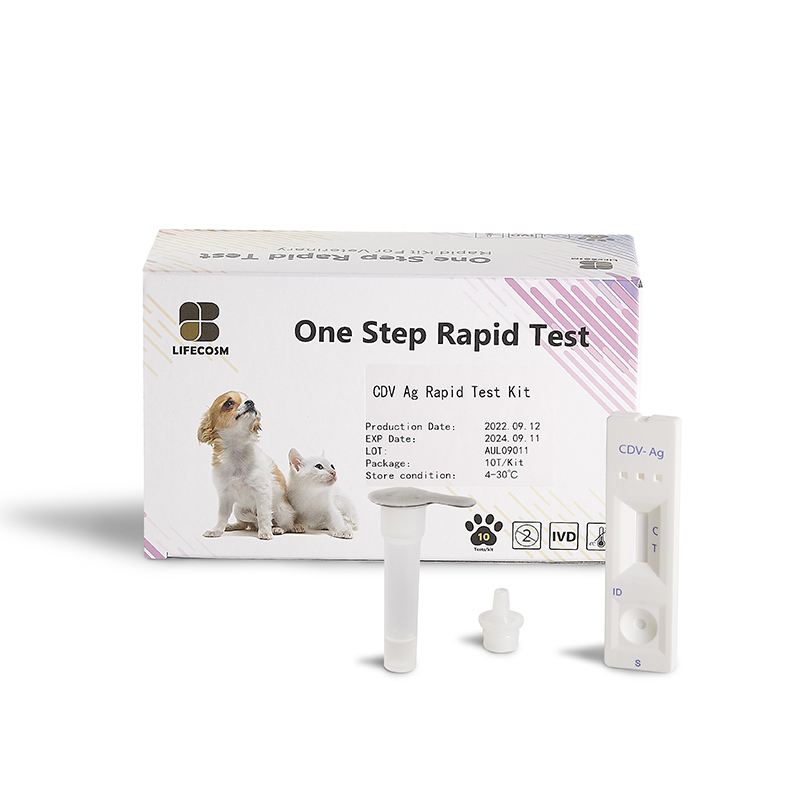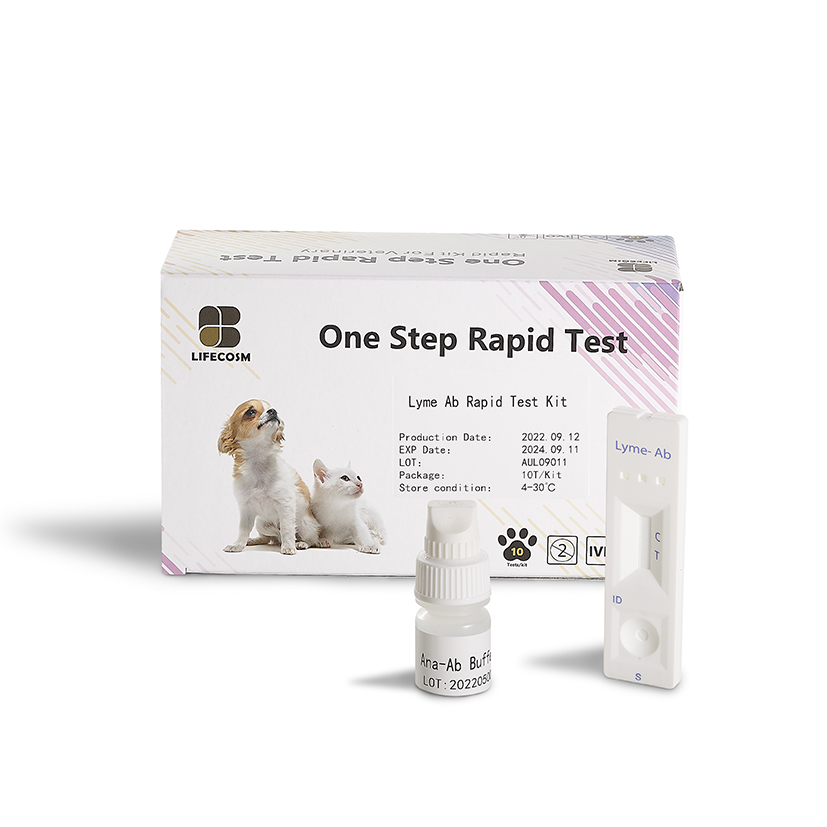
Products
Lifecosm Peste Des Petits Ruminants Antigen Rapid Test Kit for veterinary test
Peste Des Petits Ruminants Antigen Rapid Test Kit
| Summary | Detection of specific Antigen of Peste Des Petits Ruminants within 15 minutes |
| Principle | One-step immunochromatographic assay |
| Detection Targets | Peste Des Petits Ruminants Antigen |
| Sample |
ocular discharge or nasal discharge. |
| Reading time | 10~ 15 minutes |
| Quantity | 1 box (kit) = 10 devices (Individual packing) |
| Contents | Test kit, Buffer bottles, Disposable droppers, and Cotton swabs |
|
Caution |
Use within 10 minutes after opening
Use appropriate amount of sample (0.1 ml of a dropper) Use after 15~30 minutes at RT if they are stored under cold circumstances Consider the test results as invalid after 10 minutes |
Information
Ovine rinderpest, also commonly known as peste des petits ruminants (PPR), is a contagious disease primarily affecting goats and sheep; however, camels and wild small ruminants can also be affected. PPR is currently present in North, Central, West and East Africa, the Middle East, and South Asia. It is caused by small ruminants morbillivirus in the genus Morbillivirus, and is closely related to, among others, rinderpest morbillivirus, measles morbillivirus, and canine morbillivirus (previously known as canine distemper virus). The disease is highly contagious, and can have an 80–100% mortality rate in acute cases in an epizootic setting. The virus does not infect humans.
Signs and symptoms
Symptoms are similar to those of rinderpest in cattle and involves oral necrosis, mucopurulent nasal and ocular discharges, cough, pneumonia, and diarrhea, though they vary according to the previous immune status of the sheep, the geographic location, the time of year, or if the infection is new or chronic. They also vary according to the breed of sheep. However, fever in addition to either diarrhea or signs of oral discomfort is sufficient to suspect the diagnosis. Incubation period is 3-5 days.
Order Information


